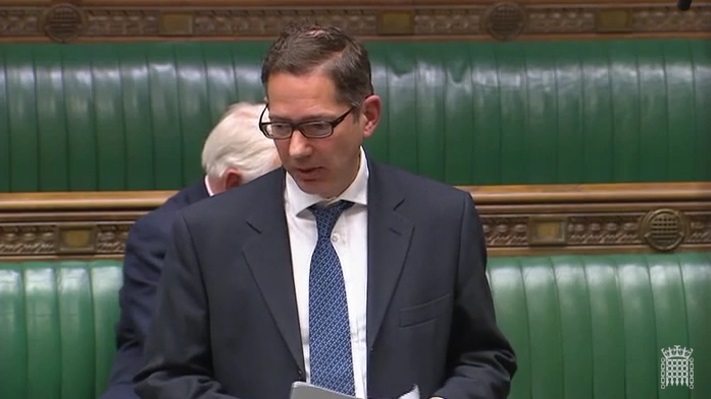Jonathan Djanogly welcomes Government moves on the Magnitsky provisions, which would freeze UK assets of people suspected of human rights abuses, and calls for the individuals concerned to be named in a public Magnitsky list.

Mr Djanogly
First, let me join many hon. Members in congratulating the Government and, in particular, the Minister on building a consensus within the parties and among hon. Members on the Magnitsky provisions, which I wish to speak to today.
Time is short, so I will make only a few brief points. On whether these powers are actually going to be used and on the methods of use, I do not yet see any significant change of Government policy. However, if this debate is going to be the herald of a new-found dynamism to clear the UK of the £90 billion of black money flowing through our banks, real estate market, private schools, Bond Street and the rest, I would certainly very much welcome that. My question is: will action now follow the law? I will be interested to hear whether the Foreign Office has had words with the Attorney General, the Home Office or other Departments in that regard—is there a strategy?
On the Government amendments, I see that new clause 3 provides for a reporting system for human rights violation-related sanctions. That is welcome, but my reading of this provision is that it is a retrospective check on what the Government have done and not so much on what they intend to do—if I am wrong on that, I would be grateful if the Minister would clarify the position. The measure in itself is commendable, and I agree that if the report is a sparse one, it would imply and provide evidence to support claims that the Government should be doing more. However, I was very pleased to hear the Minister suggesting today that we are also to have a list system that will be updated on an ongoing basis for those subject to sanctions, as this approach has clearly been so effective elsewhere. Having said that, will the Minister confirm whether people to whom the relevant sanctions have been applied would also need to be listed in the Government new clause 3 report? I believe the answer is yes, but I would be grateful if he would clarify that. Even if there is to be a running administrative list, it would be helpful to have the names set out in the report, with reasons given and an assessment.
There is another related issue here: could the Minister confirm whether the visa bans attributed to section 1 -type sanctions would also be listed in the new proposed report? Again, maintaining the current system of secret visa bans is simply not as effective as people knowing that their lack of welcome here will be made public in a Magnitsky-list fashion. What these people fear, every bit as much as receiving a visa ban, is other people knowing about it.
My final point is that although this Bill creates a new post-Brexit framework for sanctions, it does not actually set out our policy for how sanctions will be considered or implemented on a multinational basis, which everyone agrees is the most effective approach, as has been said by my right hon. Friend the Member for Newbury (Richard Benyon). So will the Minister explain how these sanctions provisions would be considered within the European Union after we have left it? For instance, is consideration being given to setting up a new co-ordinating committee within the EU? In various speeches I have read, it seems clear that the EU will continue to wish to work closely with the UK on external security matters, so there seems to be goodwill to that end. I would be interested to hear more on how we propose that decision making on sanctions will be put into an institutional context.
We have mainly discussed Russia today. It is worth mentioning that the US aluminium sanctions on Russia were put in place only a few weeks ago, and I have since heard of a degree of kickback from other countries such as Germany and other negatively affected parties. Clearly, if we are going to get tough on sanctions, it will be important to continue to present a united front. So we are seeing progress, but ultimately this will need to be proved by a better UK record of sanctions, visa bans, asset seizures and active prosecutions. Will the law be backed by action? The days of the UK being a dumping ground for illegal black money need to come to an end, and I hope that this Bill will act as a spark to get the process moving.
